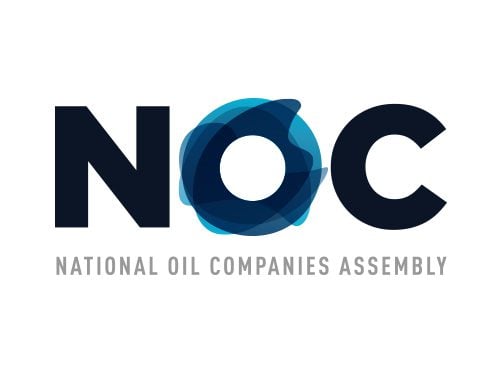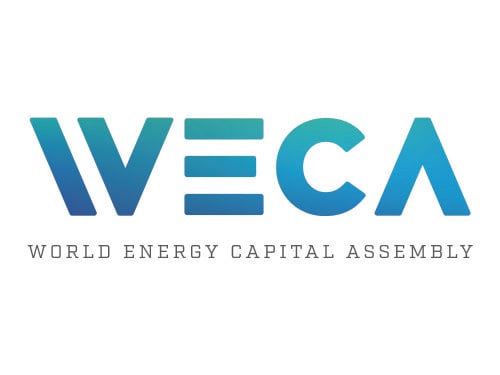
November 2019
Andreas de Vries, Strategy Management & Transformation Advisor, Saudi Aramco
Can you talk about your journey that ended up as a key advisor at Saudi Aramco and what your job is at the world’s largest NOC?
I began my career at one of IOCs, for whom I did a number of transformation jobs on the finance and strategy side of the business, in Europe, the Americas and Asia.
Because of that experience, in 2012 I joined Qatar Petroleum to support them with their efforts to establish integrated planning – performance – risk management across their organization. The objective was to enable the Management Committee lead by the Minister of Energy to move to a more structured and data-based methodology for decision-making. So in Qatar I worked on defining the end-state desired by the Management Committee, and I was also part of the team that managed the process and cultural changes this end-state required.
Saudi Aramco’s Downstream organization is currently working on taking big steps forward in their business management processes, processes such as Strategic Planning, Performance Management, Finance Management, Portfolio Management, JV Management, Risk Management and automation. They asked me to support their effort because of my experience in these areas. So now I support Saudi Aramco’s Downstream Management to define what exactly the business management processes at their organization should look like (1); I support them also with the implementation of the Saudi Aramco Downstream version of these business management processes (2); and I manage the execution/utilization of these business management processes, such that Management is enabled to focus on the areas critical for the success of the business and to take the data-based decisions that drive continuous improvement and growth of the business.
What’s your take on the ways in which NOCs are changing from their traditional roles as domestic oil and gas producing entities into… something else? What do you see as the main changes happening right now for a company comparable to Saudi Aramco?
My feeling is that most of the NOCs around the world have over recent years become more outward looking. They now see themselves at participants in a global market place, rather than as organizations whose mandate is to just deliver a specific service in a specific country.
With this global awareness has come an ambition to further professionalize, to optimize the internal business management processes. Because the leaders of these organizations recognize that to compete with the best, one has to be amongst the best. This was my experience in Qatar, it is now my experience at Saudi Arabia, and one can see the same vision and strategy at other NOCs as well.
Can you talk about the process by which fundamental strategic change at a NOC takes root amongst its executives? How does something go from vision to execution?
The NOCs have for most of their existence been run as extensions of the government, rather than as profit focused commercial companies. Consequently, most of them have work to do catch up with the IOCs in the critical areas of taking the right decisions, at the right time, and driving the decisions through the organization fast, to have them practically influence the organization and keep it on a course to capturing opportunities and avoiding threats.
Most, if not all of the major NOCs today are fully participating in the global market place, owning assets around the world, often times in partnership with the IOCs. The leaders in the NOCs today have a very good understanding of how the IOCs operate, the depth of the analyses on the basis of which they take their decisions, the speed at which they take these decisions and the speed at which they turn these decisions into practical action and concrete results.
Consequently, in my experience at least, the leaders of the NOCs recognize the gap between their organizations and the IOCs in these critical areas. In other words, they recognize the need to act. I have also found them fully committed to addressing these gaps, but at NOCs this tends to be quite a complicated exercise because almost none of the NOCs are today fully disconnected from their government. For this reason, standard, off-the-shelve solutions to address the gaps, that were designed in and for private organizations struggling with decision-making and execution, usually do not work at the NOCs.
I’ve found that many times, many of the NOCs began their efforts to address their performance gaps in decision-making and execution with an attempt to implement the standard, off-the-shelve solutions. Usually these attempts fail, for the simple reason mentioned above, which is that the solution was not designed with a NOC and its specificities in mind.
In my view, therefore, the biggest challenge for NOCs is to acknowledge that to become one of the best requires more than just copying what the current best are doing. The NOCs have to find their own way to optimized decision-making and execution, establishing processes that recognize and effectively deal with the uniquenesses that every NOC has.
Once the leadership of the NOC recognizes this, it can take big steps forward quickly. Especially once this new approach to addressing performance gaps starts to deliver positive results to the organization, addressing the frustration that has often times resulted from implementing solutions that were not really fit-for-purpose.
What are some of the main gaps between theory and practice when it comes to actually implementing strategic change in an organisation as large and complex as Saudi Aramco? How do you bridge those gaps?
Most NOCs remain connected to their governments. As a consequence, most have mandates that are much broader than the mandates of the IOCs, or of any private company for that matter. The IOCs and other private companies can focus on profit maximization, or shareholder returns. Most NOCs are expected to maximize profits or shareholders returns while also being responsible for things such as utilization of the national resource endowment of the country, adequate refined product supply across the country, strategic inventory management, human resources development, infrastructure management, et cetera.
So firstly, the NOC that embarks upon a voyage to transform itself, to become competitive in the global market place, and thus optimize decision-making and execution, must separate these responsibilities. It must isolate the non-core responsibilities, what they require of resources, and how they impact overall effectiveness and efficiency, from the core business of developing, producing, processing, selling and trading hydrocarbons. On a combined basis, namely, the performance matrix of the NOC will always lag behind that of the IOCs. And I’ve found that on a combined basis, most performance discussions in the organization tend to become about why the organization is not at the IOC performance level, which usually has to do with the additional mandated task, that is the so-called “non-controllables”, whereas the discussion should be about the things the organization can control and influence and how performance in these areas can be improved.
Secondly, part of transformational change management is cultural change management. I’ve found that in NOC environments there can be tendency to see underperformance versus peers as something shameful, blameworthy, et cetera. In such an environment it is human nature to try to avoid the really big issues, and to focus on that which is already going reasonably well. Therefore, it is important that the organization embarking on transformational change does not limit itself to implementing/improving the management processes, but also works on developing a culture that rewards the identification of issues and efforts to address these, and which reserves its blame only for those that try to hide issues or that refuse to work on resolving them.
If the NOC can do these two things, which is separate the “controllables” from the “non-controllables”, and establish a culture where people feel at ease to discuss issues with the controllables and motivated to resolve these, then eventually this NOC will achieve its aspirations and be successful in the global market place. This destination won’t be reached overnight, of course, but every organization with a positive energy to identify and address performance issues will eventually become a best-in-class performer.
Do you perceive a loosening up of the structures under which an NOC must operate with regards to the Government? Do you have any thoughts on how NOC/Government relationships are changing?
It is noticeable that especially the larger NOC’s are broadening their horizon and are expanding internationally. Since they are NOCs, I am assuming this is done in full agreement with their respective governments.
As I mentioned, the broad mandates of NOCs makes it harder for them to effectively compete, since the competition has the more limited mandate of profit- or shareholder return maximization, which enables them to be more focused. To manage this, I see two possible ways forward for the NOCs:
- Either the NOC agrees with its governments that it can unload (some of) the additional responsibilities on it, possibly by transferring them to other state-owned organizations; or
- The NOC clearly separates the profit- or shareholder return maximization focused business from the other parts of the organization that are responsible for managing the other, additional responsibilities, such that performance of the profit- or shareholder return maximization focused business can be more effectively measured and managed.
Over the last 2 years or so there have been a number of indications that discussions on this subject are taking place between the NOCs and their governments, at least in the GCC. For example, the Saudi Aramco IPO, ADNOC’s listing of its fuel distribution business, and in Qatar the separation of the Ministry of Energy & Industry and Qatar Petroleum, are all examples of attempts to resolve the challenge.
I would say there is probably no “one right way for all”, and that differing circumstances will results in different solutions for the mentioned challenge.
Andreas de Vries, Strategy Management & Transformation Advisor, Saudi Aramco will be speaking at the National Oil Companies Assembly 4 December, 2019 in London.



